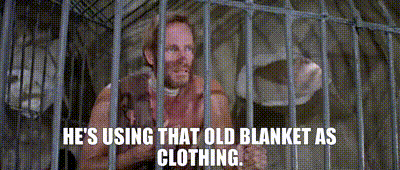The FIRST THING THAT YOU DO :
Fix The Things That Announce Themselves as In-Need of Repair.
JUST FOCUS ONLY ON THE PROBLEM THAT IS IN FRONT OF YOU.
The Hunger Strike centred on five demands :
1. The Right not to wear a prison uniform;
2. The Right not to do prison work;
3. The Right of free association with other prisoners, and to organise educational and recreational pursuits;
4. The Right to one visit, one letter, and one parcel per week;
5. Full restoration of remission lost through the protest.
The significance of The Hunger Strike was The Prisoners' aim of being considered Political Prisoners as opposed to Criminals.

Operation Demetrius was a British Army operation in Northern Ireland on 9–10 August 1971, during the Troubles. It involved the mass arrest and internment (imprisonment without trial) of 342 people suspected of being involved with the Irish Republican Army (IRA), which was waging an armed campaign for a united Ireland against the British state. It was proposed by the Northern Ireland Government and approved by the British Government. Armed soldiers launched dawn raids throughout Northern Ireland, sparking four days of violence in which 20 civilians, two IRA members and two British soldiers were killed. All of those arrested were Irish nationalists, the vast majority of them Catholic. Due to faulty intelligence, many had no links with the IRA. Ulster loyalist paramilitaries were also carrying out acts of violence, which were mainly directed against Catholics and Irish nationalists, but no loyalists were included in the sweep.

The introduction of internment, the way the arrests were carried out, and the abuse of those arrested, led to mass protests and a sharp increase in violence. Amid the violence, about 7,000 people fled or were forced out of their homes. The interrogation techniques used on some of the internees were described by the European Commission of Human Rights in 1976 as torture, but the superior court, the European Court of Human Rights (ECHR), ruled on appeal in 1978 that while the techniques were “inhuman and degrading”, they did not, in this instance, constitute torture.2 It was later revealed that the British government had withheld information from the ECHR and that the policy had been authorized by British government ministers.3 In light of the new evidence in December 2014, the Irish government asked the ECHR to revise its 1978 judgement. The ECHR declined the request in 2018.
 The policy of internment lasted until December 1975 and during that time 1,981 people were interned; 1,874 were Nationalist, while 107 were Loyalist. The first Loyalist internees were detained in February 1973.
The policy of internment lasted until December 1975 and during that time 1,981 people were interned; 1,874 were Nationalist, while 107 were Loyalist. The first Loyalist internees were detained in February 1973.
No comments:
Post a Comment